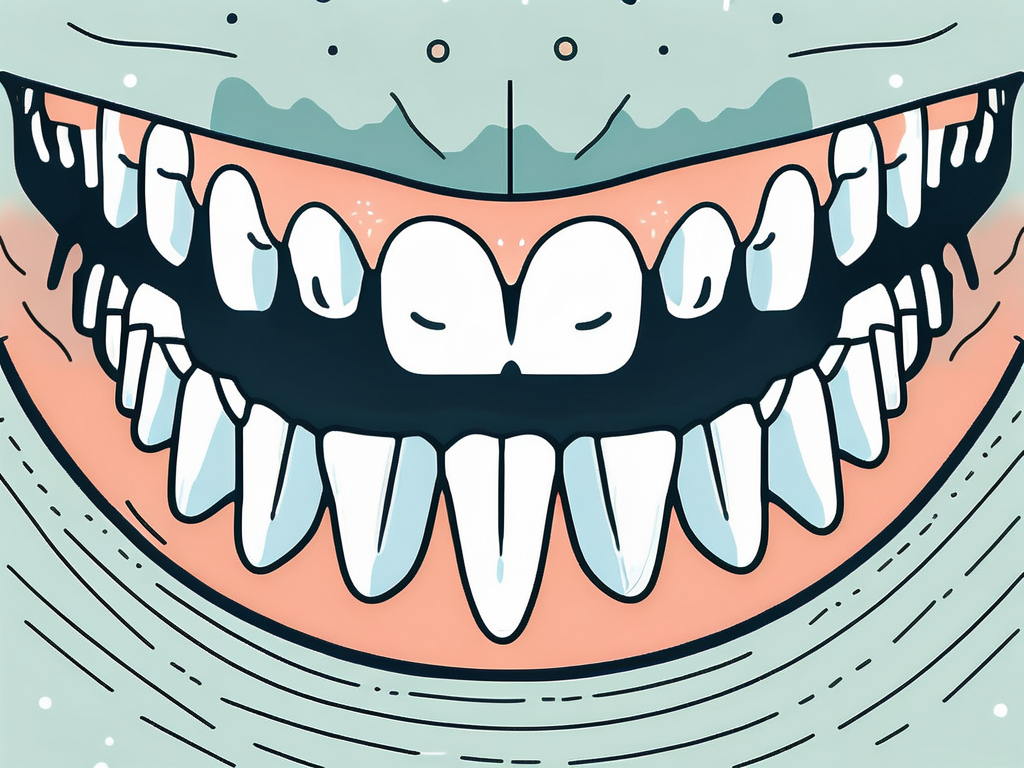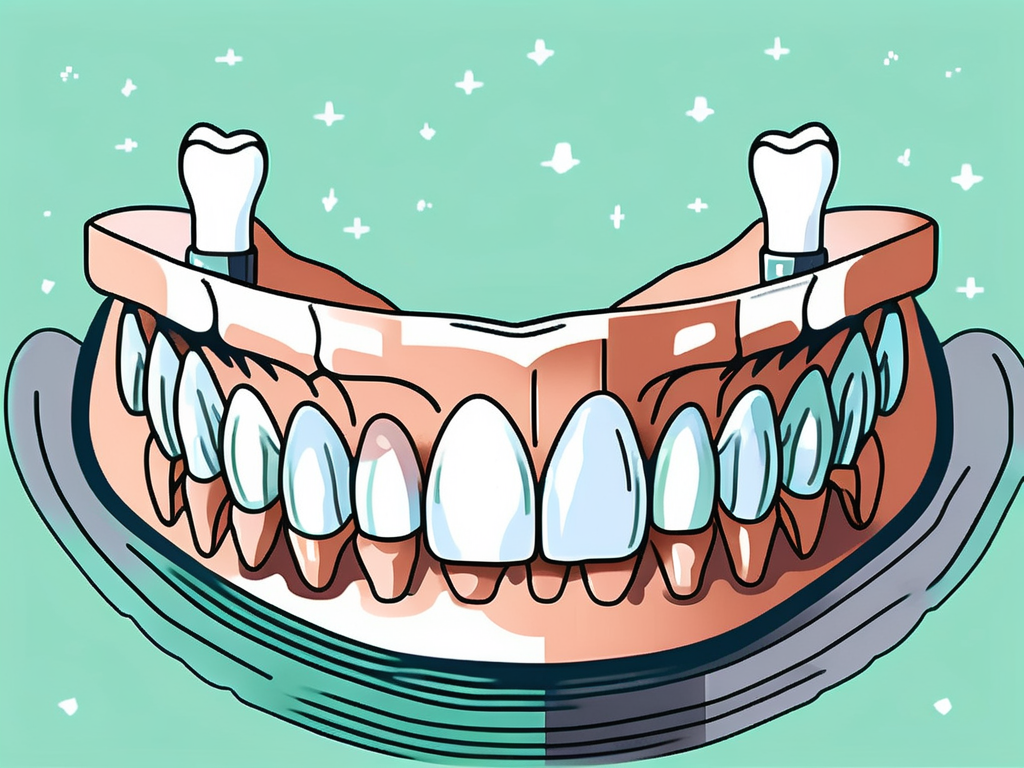Teeth grinding, also known as bruxism, is a common dental problem affecting millions of people worldwide. It often occurs during sleep, causing significant damage to the teeth and oral health. Fortunately, the use of mouth guards has emerged as an effective solution for protecting against teeth grinding. In this article, we will explore the causes and impact of bruxism, the role of mouth guards in dental protection, the benefits of using mouth guards, how to choose the right mouth guard, and the proper care and maintenance of mouth guards.
Understanding Teeth Grinding (Bruxism)
Before delving into the use of mouth guards, it is essential to understand what teeth grinding, or bruxism, is. Bruxism refers to the act of clenching or grinding teeth, typically during sleep. While occasional teeth grinding may not be a cause for concern, frequent and severe bruxism can have detrimental effects on oral health.

Bruxism is a common condition that affects both children and adults. It is estimated that up to 20% of adults and 15% of children experience bruxism to some degree. The exact cause of bruxism is not always clear-cut, as it can be influenced by a combination of physical, psychological, and genetic factors.
The Causes of Bruxism
Bruxism can be caused by various factors, including stress, anxiety, abnormal bite, misaligned teeth, sleep disorders, and certain medications. Identifying the underlying cause of bruxism is crucial for effective treatment and prevention.
Stress and anxiety are common triggers for bruxism, as individuals may unconsciously clench or grind their teeth as a way to cope with emotional tension. Additionally, structural issues such as malocclusion (misalignment of teeth) or an abnormal bite can contribute to the development of bruxism. In some cases, certain medications like antidepressants or stimulants have been linked to an increase in teeth grinding as a side effect.
The Impact of Bruxism on Oral Health
Bruxism can lead to numerous oral health problems, such as tooth wear, chipped or cracked teeth, jaw pain, headaches, and even the development of temporomandibular joint disorders (TMJ). The continuous grinding action exerted on the teeth can result in irreversible damage if left untreated.
Over time, the constant pressure and friction from bruxism can wear down the enamel of the teeth, making them more susceptible to decay and sensitivity. The repetitive motion of grinding can also put strain on the jaw muscles, leading to discomfort and pain in the temporomandibular joint. In severe cases, untreated bruxism can result in the fracturing of teeth or the onset of chronic headaches, impacting the individual's overall quality of life.
The Role of Mouth Guards in Dental Protection
Mouth guards are custom-designed dental appliances that are worn during sleep to protect the teeth and jaw from the effects of teeth grinding. They act as a cushioning barrier between the upper and lower teeth, preventing direct contact and minimizing the impact of bruxism.
Bruxism, the unconscious clenching or grinding of teeth, can lead to various dental issues such as tooth wear, enamel damage, jaw pain, and headaches. Mouth guards play a crucial role in managing these problems by providing a protective barrier that absorbs the forces exerted during grinding, thus safeguarding the teeth and surrounding structures.
What is a Mouth Guard?
A mouth guard is a removable oral appliance made of either soft or hard material, depending on the severity of the bruxism. It is custom-fitted to the patient's teeth by a dentist to ensure maximum comfort and effectiveness.
Soft mouth guards are typically made of flexible materials like silicone, offering a cushioning effect for mild to moderate teeth grinding. On the other hand, hard mouth guards, often crafted from acrylic, provide more durability and are suitable for severe bruxism cases. Regardless of the material, the mouth guard is designed to create a barrier that redistributes the forces of grinding, protecting the teeth from excessive wear and damage.
How Does a Mouth Guard Work?
When wearing a mouth guard, the force generated by teeth grinding is absorbed by the appliance rather than the teeth themselves. Mouth guards help eliminate or reduce tooth wear, protect the enamel, alleviate jaw muscle strain, and prevent pain associated with bruxism.
Moreover, mouth guards promote proper jaw alignment by keeping the upper and lower teeth slightly separated, reducing the strain on the temporomandibular joint (TMJ). This alignment not only prevents discomfort and pain in the jaw but also contributes to overall oral health by maintaining a balanced bite.
Benefits of Using Mouth Guards
Using mouth guards can provide several benefits in protecting against teeth grinding and its adverse effects on oral health.

Additionally, mouth guards can help in preventing other oral health issues such as temporomandibular joint (TMJ) disorders. The cushioning effect provided by the mouth guard can reduce the pressure on the jaw joint, thus lowering the risk of developing TMJ-related symptoms like jaw clicking, popping, or locking.
Preventing Tooth Damage
Mouth guards serve as a protective shield, preventing direct tooth-to-tooth contact and minimizing the risk of tooth fractures, chips, and wear due to bruxism. By distributing the forces evenly, they help preserve the natural tooth structure.
Moreover, mouth guards can also protect dental restorations such as crowns, bridges, and fillings. The grinding forces exerted during bruxism can weaken these restorations over time, but a mouth guard acts as a barrier, extending the lifespan of the dental work.
Reducing Pain and Discomfort
Bruxism can cause significant jaw pain, headaches, and facial soreness. Mouth guards help alleviate these symptoms by promoting proper jaw alignment and reducing the strain on the jaw muscles. This can result in a more restful sleep, free from discomfort caused by teeth grinding.
Furthermore, wearing a mouth guard can also improve overall sleep quality. Bruxism episodes can disrupt sleep patterns, leading to fatigue and daytime drowsiness. By using a mouth guard, individuals can experience uninterrupted sleep, enhancing their overall well-being and daily productivity.
Choosing the Right Mouth Guard
Selecting the right mouth guard is essential to ensure optimal protection and comfort. Various factors should be considered when making this choice.

When it comes to protecting your teeth from the damaging effects of bruxism, the decision between over-the-counter and custom-fitted mouth guards is crucial. While over-the-counter options may seem convenient, they often lack the precision fit necessary for effective protection. On the other hand, dentist-prescribed custom-fitted mouth guards offer a superior solution. These guards are meticulously crafted to match the individual's unique dental anatomy, providing a comfortable and secure fit that maximizes protection.
Over-the-Counter vs. Custom-Fitted Mouth Guards
While over-the-counter mouth guards may seem convenient, they often lack the proper fit and customization necessary for effective protection. Dentist-prescribed custom-fitted mouth guards offer a superior solution, as they are precisely designed to fit the individual's unique dental anatomy.
Furthermore, the customization of a dentist-prescribed mouth guard allows for adjustments to be made based on the specific needs of the patient. This tailored approach ensures that the mouth guard not only provides optimal protection against bruxism but also enhances overall comfort during wear, promoting better compliance and long-term use.
Materials and Durability
Mouth guards can be made from a variety of materials, including soft and hard plastics. The choice of material depends on the severity of bruxism and the individual's preferences. Hard mouth guards are more durable and suitable for severe teeth grinding, while soft mouth guards offer enhanced comfort for milder cases.
Additionally, the durability of a mouth guard is a key factor to consider when making your selection. Hard mouth guards, typically made from acrylic, are known for their longevity and ability to withstand heavy grinding forces. On the other hand, soft mouth guards, often made from flexible materials like silicone, prioritize comfort but may require more frequent replacement due to wear and tear. Understanding the trade-offs between material durability and comfort can help you choose a mouth guard that best meets your needs and preferences.
Proper Care and Maintenance of Mouth Guards
To ensure the longevity and effectiveness of mouth guards, proper care and maintenance are essential.
Mouth guards are dental appliances designed to protect your teeth from the harmful effects of bruxism, or teeth grinding. Bruxism can lead to worn enamel, tooth sensitivity, jaw pain, and even cracked teeth. By wearing a mouth guard, you create a protective barrier that absorbs the forces generated by grinding, safeguarding your teeth while you sleep.
Cleaning Your Mouth Guard
Regular cleaning of the mouthguard is crucial to prevent bacterial growth and maintain oral hygiene. It is recommended to gently brush the mouth guard with a soft toothbrush and mild soap or use denture cleaner tablets. Avoid using hot water, as it can deform the appliance.
In addition to daily cleaning, it is advisable to soak your mouth guard in a denture cleaning solution at least once a week. This helps to remove stubborn bacteria and plaque buildup that may not be eliminated through brushing alone. Proper cleaning not only ensures the hygiene of the mouth guard but also prolongs its lifespan.
When to Replace Your Mouth Guard
Over time, mouth guards may wear out or become damaged. It is important to monitor the condition of the mouth guard and replace it as needed. Signs of wear include thinning material, cracks, or changes in fit. Consult your dentist to determine when it is time for a replacement.
Furthermore, if you experience any discomfort, shifting of teeth, or notice unusual wear patterns on your mouth guard, these may also indicate the need for a new appliance. Regular dental check-ups can help assess the condition of your mouth guard and ensure it continues to provide optimal protection against bruxism.
In conclusion, mouth guards play a crucial role in protecting against teeth grinding (bruxism) and its negative impact on oral health. By acting as a barrier between the teeth and absorbing the grinding forces, mouth guards can prevent tooth damage, reduce pain and discomfort, and promote better sleep. Choosing a custom-fitted mouth guard, based on the severity of bruxism, and consistently maintaining it will ensure maximum effectiveness and longevity. Protect your smile and prioritize your dental health by considering the use of mouth guards for teeth grinding prevention and treatment.













